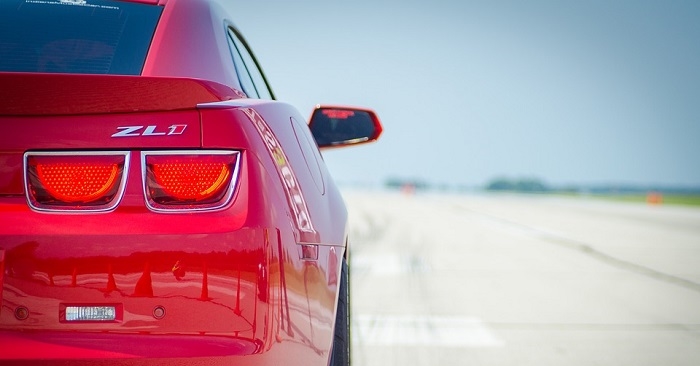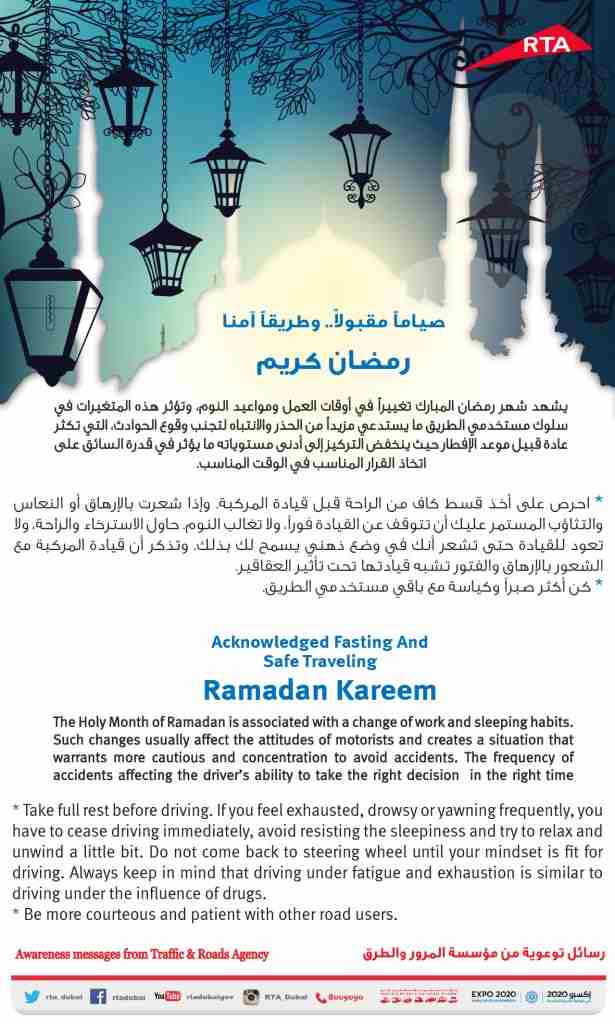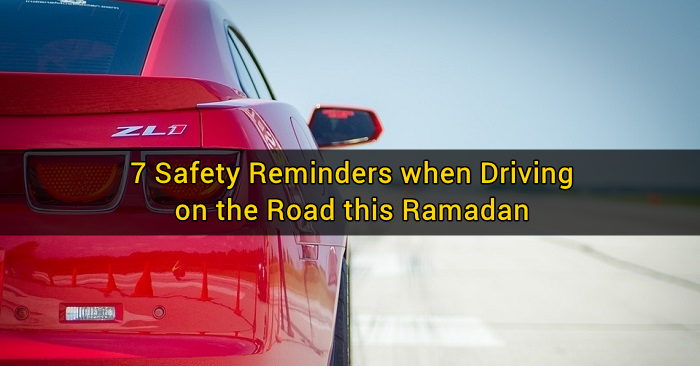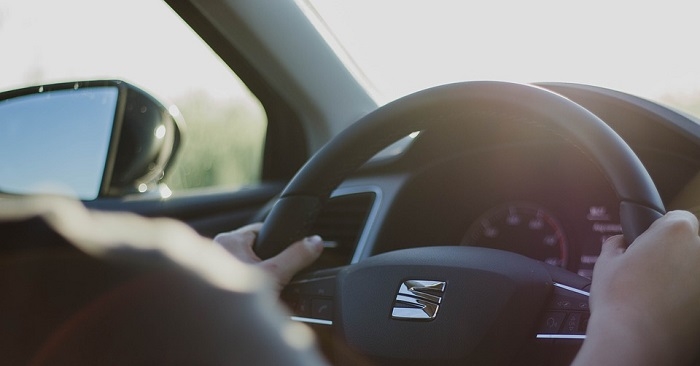Did you know that road accidents, injuries, and fatalities tend to peak during Ramadan? This could be attributed to the effects of fasting on the body. Since the Holy Month coincides with summer season, the extreme heat also leads to faster dehydration — affecting concentration.
Fasting results in low blood sugar, which can hamper a motorist’s attentiveness, vision, and reaction. What’s more, the irregular meal timings, unusual sleep patterns, and traffic rush on the way to Iftars could lead to unexpected incidents. Hence, road safety is of the utmost importance!
Tips for Safe Driving During the Holy Month
Based on a study of last year’s Ramadan, here are some findings made by Road Safety UAE:
- Accidents tend to happen around mid-morning, from 10 am – 11 am
- Male motorists age 40 years old and above are particularly vulnerable
- The most “dangerous” days are Tuesdays; the least dangerous are Sundays
With these in mind, the founder of Road Safety UAE, Thomas Edelmann, shared some advice on traveling safely during Ramadan. Here are several tips that all motorists should consider:
#1 – Wear your seat belt at all times.
The simple act of wearing your seat belt could be the very thing that saves your life. Besides, this safety habit should be done everyday — and not just on Ramadan!
#2 – Get enough sleep.
No matter how busy you are, never underestimate the importance of a good night’s sleep. Sleeping for 6 to 8 hours every night can give you the energy you need throughout the day.
#3 – Be aware of your own limitations.
As cited earlier, fasting can affect your vision, concentration, and reaction. You may find yourself getting tired more easily, so be aware of your physical and mental condition at all times.
#4 – Be aware of other people’s limitations.
Even if you are not fasting, keep in mind that other people are. Watch out for any sudden movements by other motorists, as well as cyclists and pedestrians. Be extra patient, sensitive, and cultivate a caring attitude!

#5 – Keep your distance.
This rule applies all year round, and not just during the Holy Month. Keep a safe distance between you and other vehicles. Avoid tailgating!
#6 – Pull over if you start feeling drowsy.
If you find yourself becoming drowsy or tired all of a sudden, do not hesitate to pull over on the road shoulder or at the nearest petrol station. Take a few minutes to rest before driving again.
#7 – Plan your schedule beforehand.
The morning rush could get pretty hectic during Ramadan. Similarly, the pre-Iftar rush hour could also be problematic. To avoid getting harried during these periods, plan your schedule beforehand. If you are going to be late for an event, do not worry; people will understand.
Additional Tip:
If you do not want to risk getting drowsy while driving, you can always use public transportation. Hail a taxi, take the bus, or ride on the metro. This way, you can reserve your energy for work and the full day (and night) ahead!

The weather is hot, people are fasting, and the roads may be busier during Ramadan, but these should not be an excuse to misbehave on the road. What’s more, we should always be aware of the traffic driving violations and fines prescribed by the Roads and Transport Authority (RTA).

